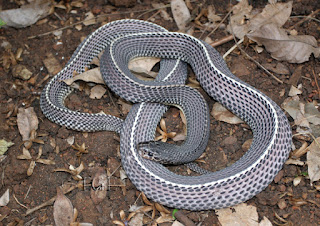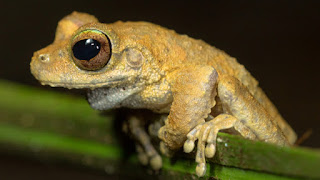12 Chinese Dog Breeds That Are Some of the Oldest and Rarest Breeds on Earth - PureWow
According to the Chinese zodiac, people born in the Year of the Dog are loyal and energetic companions. This may come as no surprise to many Western cultures who have always seen dogs as lovable buddies. But canines have a more nuanced history in China. Based on artifacts and archeological discoveries, scholars have learned that first and foremost, dogs were seen as laborers to early Chinese civilizations. Think: More work, less play. Over time, Chinese dog breeds evolved into family protectors and symbols of good fortune. Unlike dogs indigenous to Japan and Australia, Chinese dog breeds are much more varied in their temperaments and features. One thing they all have in common? Bragging rights as some of the oldest and rarest breeds on earth.
Domesticated dogs in China
Modern humans can't seem to figure out exactly when our ancient ancestors first began domesticating dogs. We have a lot of guesses, but no specifics. One 2015 study on canine genomes found dogs from East Asia have the "highest genetic diversity" among native dog groups and are more closely linked to wolves. Canine bones have also been discovered in Neolithic (Stone Age) graves and dump sites in China, some of which are 15,000 years old. These findings indicate domesticated dogs likely originated in China.
Initially bred for herding, hunting and transportation, dogs in this part of the world assisted early humans with day-to-day tasks. According to the World History Encyclopedia, the Banpo Village in China's Shaanxi Province was full of people and animals from 4500 to 3750 B.C. The villagers worked alongside dogs (cute!) and researchers believe once the dogs became too frail for labor, the villagers would kill them for fur and sustenance (yikes!).
Let's address the elephant in the room: eating dogs. Dr. Dai Wangyun, a researcher with a doctorate in folklore, says yes, ancient farming communities in China would eat dog meat when necessary. They survived on grains and vegetables, so dog meat was a handy protein option. Around the Sui and Tang dynasties (in the early 600s) as Buddhism and Islam became more popular, many people in China stopped eating dog meat.
Despite this difficult history with canines, dogs are revered in Chinese culture and closely linked with guardianship—in both this world and the next.
Dogs and guardianship
Many ancient Chinese philosophies state that dogs link the living and the dead. Canines were said to offer protection in the afterlife, guiding their owners on their journey, and defend people on earth from ghosts. Because of this, many imperial family members and notable citizens insisted on being buried alongside a dog after they died.
There is evidence that residents of the Banpo Village sacrificed dogs and buried them in front of homes as a way to ward off evil and protect themselves. This practice morphed into a tradition of placing straw, stone or jade figures of dogs out front to protect the home and family. Archeologists have identified many dogs in ancient Chinese art, including Chow Chows carved into unearthed sculptures from the Han Dynasty (around 150 B.C.).
Basically, if you wanted good fortune for your family and guidance to heaven, you'd better have had a dog to help out.
Dogs as pets in China
Even though dogs symbolize guardianship in Chinese culture, they haven't always been accepted (or allowed) as pets. Around the 1300s, dog ownership was a way of declaring high status. The Pekingese was particularly popular among wealthy families in the 1600s. But, things took a turn and owning a pet dog was seen as a waste of resources.
As recently as the 1980s dogs as pets were banned in Beijing (the ban turned into a more lenient restriction in 1994). By 2003, pet dogs were allowed as long as they were just a foot tall. Many Chinese lawmakers still saw dog ownership as indulgent and uneconomical, even into the 2010s. Just last year (2020) dogs were officially declared "companion animals," rather than "livestock," by China's Ministry of Agriculture and Rural Affairs.
Today, there are more than 5 million pet dogs in China. Many Chinese communities have even incorporated their pets into the Qingming Festival during which they sweep the tombs of their ancestors (also known as Tomb Sweeping Day). People grieving the loss of a pet can visit their pet's grave and leave trinkets or toys in honor of their loved one.
If you're interested in a native Chinese dog breed, remember their rich history. They've been around for a while and may be stuck in their ways. But you'll definitely have a guardian for life (and beyond).
RELATED: 10 Japanese Dog Breeds with Curly-Que Tails and Protective Dispositions
Mariana Mikhailova/Getty Imagess
1. Chinese Chongqing
Average Height: 13-20 inches
Average Weight: 33-55 pounds
Temperament: Confident, alert
Shedding Factor: Low
Activity Level: Moderate to High
Life Expectancy: 16 years
Though unrecognized by the American Kennel Club, the Chongqing Dog Club of the UK and Ireland touts this breed as "one of the oldest, and rarest dog breeds in the world." Some reports put the number of existing purebred Chongqing dogs at just 2,000. These pups, who look like stocky, stout Boxers, were originally bred in the mountainous region of the Sichuan-Yunnan border as hunters. Chongqing dogs make excellent protectors, which means they don't take kindly to strangers at first. Training early is a must. Their reddish-brown coats are very short—in fact, bathing them too often will dry out their skin.
MICHAEL LOFENFELD Photography/Getty Images
2. Chinese Crested
Average Height: 11-13 inches
Average Weight: 8-12 pounds
Temperament: Lively, loving
Shedding Factor: Non-shedding / Hypoallergenic
Activity Level: Moderate to High
Life Expectancy: 13-18 years
Chinese Crested dogs come in both hairless and furry varieties, though you probably recognize them best with those silky tufts of fur popping out of their heads, tail and feet. These are lovable and loving companion dogs who enjoy playtime, kids and new people. They've got alert expressions, but don't feel the need to bark at strangers. According to the American Chinese Crested Club, these pups were traded between shipping merchants in the 1500s and have appeared in centuries-old European and Mexican works of art. Good news for allergy sufferers—Chinese Crested are hypoallergenic.
Anita Kot/Getty Images
3. Chow Chow
Height: 17-20 inches
Weight: 45-70 pounds
Temperament: Serious, loyal
Activity Level: Moderate
Shedding Factor: Moderate to High
Life Expectancy: 8-12 years
Chow Chows are very unique dogs. They are known for needing their space and being incredibly fluffy (aka shedding constantly). While hopelessly devoted to their humans, Chow Chows aren't keen on strangers or other pets. Another huge aspect of Chow Chow ownership is grooming. Get ready for daily brushing and monthly baths.
Niconic_Photography/Getty Images
4. Japanese Chin
Average Height: 8-11 inches
Average Weight: 7-11 pounds
Temperament: Mellow, regal
Shedding Factor: Moderate
Activity Level: Low to Moderate
Life Expectancy: 10-12 years
According to the Japanese Chin Club of America, these spirited dogs actually originated in China. It's thought that the Pekingese was bred from the Japanese Chin (also called the Imperial Chin). Either way, owners of this small but mighty breed rave about their gracefulness and feline-like demeanor. Due to their stubborn streak, it's not wise to let them roam around the neighborhood. Get ready for a quiet, sweet indoor companion.
nationalpurebreddogday.com/Pinterest
5. Laizhou Hong
Average Height: 25-32 inches
Average Weight: 70-85 pounds
Temperament: Friendly, courageous
Shedding Factor: Moderate
Activity Level: High
Life Expectancy: 10-15 years
Also known as the Chinese Red Dog, Laizhou Hong pups have gorgeous red coats ("hong" means red) and tall, pointed ears. It's believed these dogs were bred by combining indigenous Chinese breeds with German Shepherds and Rottweilers in the 19th century when German settlers made their way into China. These dogs are brave yet kind and make good social companions. Be sure to give them a job to do.
Capuski/Getty Images
6. Lhasa Apso
Average Height: 10-11 inches
Average Weight: 12-18 pounds
Temperament: Intelligent, protective
Shedding Factor: Low
Activity Level: Moderate
Life Expectancy: 12-15 years
Though affectionate and resilient, these tiny pups aren't afraid to go full watchdog mode. Lhasa Apso dogs are very protective and may bristle at new people or animals. Since they are definitely smarty pants, exercising their minds is as important as exercising their bodies. This can be done during playtime, long walks and agility training. Many Lhasa Apsos also excel at therapy work due to their incredible loyalty.
Anastasiia Shavshyna/Getty Images
7. Pug
Average Height: 10-13 inches
Average Weight: 14-18 pounds
Temperament: Adaptable, charming
Shedding Factor: High
Activity Level: Low to moderate
Life Expectancy: 13-15 years
Pugs, alongside French Bulldogs, are some of the most adaptable dogs out there. They have small frames and easy-going personalities. Not only are they affectionate with their family members, they get along well with other dogs, kids and new pals. They have big eyes and wrinkly faces that exude happiness. It's no wonder Chinese and European royalty alike adopted Pugs as their official mascots.
swapan_banik/Getty Images
8. Pekingese
Height: 6-9 inches
Weight: 14 pounds
Personality: Confident, Loyal
Activity Level: Low
Shedding Factor: Moderate
Life Expectancy: 12-14 years
Pekingese are notorious for their long coats and lion-like appearance. This isn't an accident! These pups were bred to resemble the mythical lion Buddha is said to ride through the sky. Companion dogs like the Pekingese are used to sitting in the lap of luxury—and they're no stranger to attention: a Pekingese has won Best in Show at the Westminster Dog Show five times throughout the event's history. Though loyal to their favorite family member, they can be standoffish with kids and other animals.
Tara Gregg/EyeEm/Getty Images
9. Shar-Pei
Average Height: 19 inches
Average Weight: 52 pounds
Temperament: Protective, mellow
Shedding Factor: Moderate
Activity Level: Low to moderate
Life Expectancy: 8-12 years
Often called the Chinese Shar-Pei, these dogs are proud, independent creatures with strong protective instincts. While affectionate with family members, they may be wary of strangers. Train commands early and firmly, otherwise you'll have a very difficult, stubborn dog on your hands. Interesting features include their blue-black tongue (wow) and a coat that is slightly rough to the tough (shar-pei means "sand skin").
© copyright 2011 Sharleen Chao/Getty Images
10. Shih Tzu
Average Height: 9-11 inches
Average Weight: 9-16 pounds
Temperament: Cheerful, loving
Shedding Factor: Low
Activity Level: Moderate to High
Life Expectancy: 10-18 years
Forget everything you thought you knew about small, yappy dogs! Shih Tzu pups are cheerful, outgoing and kid-friendly pets. They adapt very well to many different households, even teeny tiny apartments. These are dogs bred by royal families for companionship and status. If you want your pet to enjoy sitting on your lap and giving you tons of attention, the Shih Tzu is the dog for you.
Gin's Photo Studio
11. Shaanxi Xian Hound
Average Height: 27-30 inches
Average Weight: 44-66 pounds
Temperament: Aloof, calm
Shedding Factor: Moderate
Activity Level: High
Life Expectancy: 10-14 years
Shaanxi Xian Hounds have been around for at least 2,500 years, according to the China Native Breed Conservation Club. These tall, elegant canines are likely the ancestors of Greyhounds and Afghan hounds. Bred to chase and hunt, their bodies are aerodynamically designed for optimal speed. Though calm when not in motion, Xians are independent and respond only to those they know and love best.
wulingyun/Getty Images
12. Xiasi Hound
Average Height: 17-20 inches
Average Weight: 44-66 pounds
Temperament: Affectionate, determined
Shedding Factor: Low
Activity Level: High
Life Expectancy: 10-14 years
The Xiasi is a true hunting dog bred in China's Guizhou province. Their wiry hair gives them a plucky, terrier-like look. These hounds enjoy a hard day's work - herding, chasing, running - but know when to relax with their families at home. Xiasis love their families and work well with kiddos! Smaller pets, like cats or hamsters, might trigger their high prey drive. Again, this is a very rare breed. If you have the good fortune of meeting a Xiasi, count your lucky stars.
RELATED: 15 Dog Breeds That Act Like Cats















Comments
Post a Comment